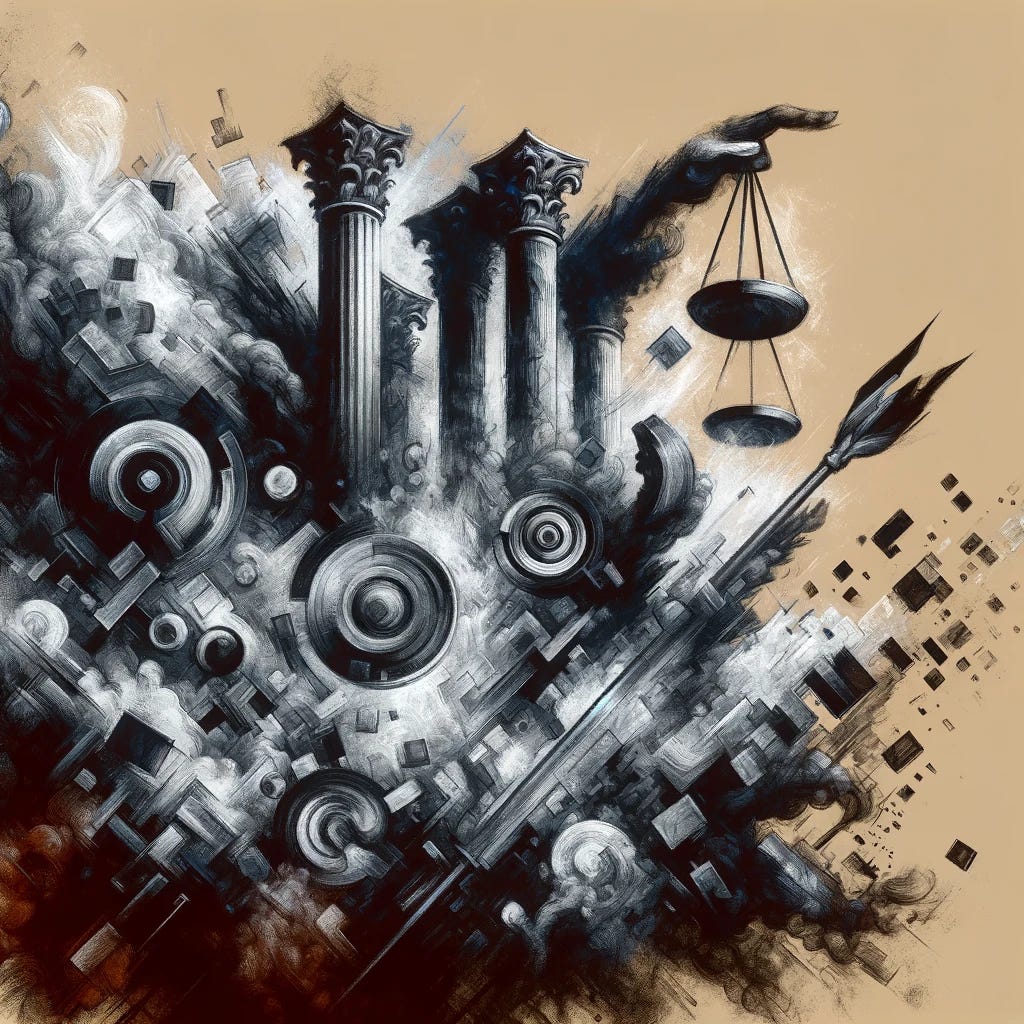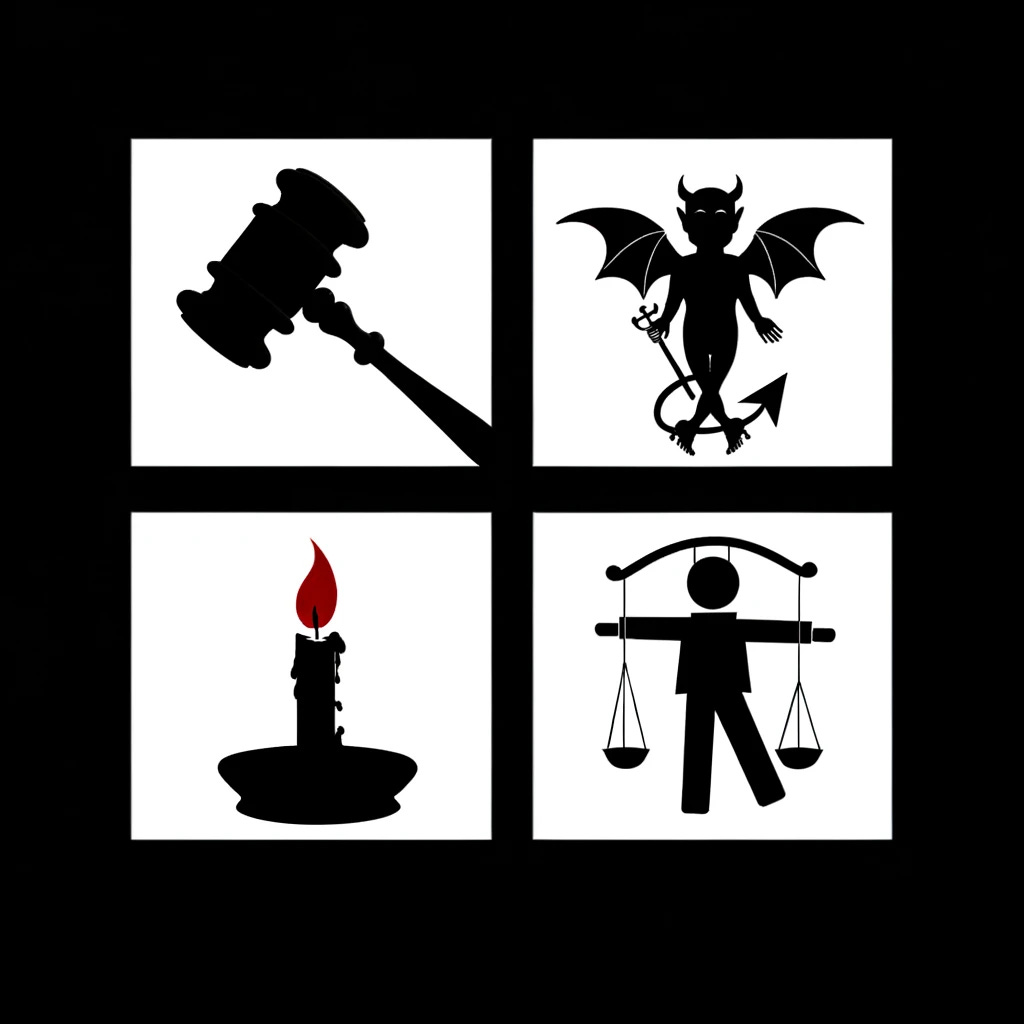LexNews+ Weekly No. 12
Coinbase case updates; why the SEC is going after ETH; Sam got sentenced; US Dept. of Energy news; and SEC v WAHI in review; updates on our recent DUNA study group discussion, and more.
Sections:
1. Headlines (The top stories in cryptolaw this week)
2. Podcasts
3. LexDAO weekly updates
4. Closing Statements
Attention lawyers: we'll pay you 75 USDC for a 30-minute meeting to tell you more about MIDAO! Book your meeting here today! - the MIDAO team
Headlines
1. Coinbase case news: after marinating the result, a huge W for crypto.
Haroldo
On August 4th 2023, Coinbase (and Coinbase Global Inc.) filed a Motion for Judgment on the Pleadings at the US District Court for the Southern District of New York relating to the case initiated against them by the Securities & Exchange Commission (SEC).
On March 27th, 2024 the Court denied Coinbase’s motion in part. So the case against Coinbase will continue with regards to operating as an unregistered intermediary of securities, as an exchange, as a broker, as a clearing agency and for engaging in unregistered offer and sales of securities through its Staking Program. Going to trial is not as cool as having gotten the motion granted over all the claims, but Coinbase has stated that it is confident in its legal arguments and prepared to continue the process over the claims for which the motion was not granted.
What about the claim for which the motion was granted? The SEC had claimed that Coinbase acts as an unregistered broker by making Coinbase Wallet available to its customers. SEC stated that Coinbase “engaged in the business of effecting transactions in securities for the account of others” through Coinbase Wallet. Judge Katherine Polk Failla agreed with Coinbase that they are entitled to dismissal of that claim and the Court dismissed the SEC’s claim that Coinbase acts as an unregistered broker through its wallet service in violation of Section 15(a) of the Exchange Act.
Why is this a big deal for all of Crypto? Judge Katherine Polk Failla recognized that when a person is using a self-custodial wallet (like Coinbase Wallet), the person’s control over their private key translates into actual control of crypto-assets, and that no one can transact on the owner's behalf. Therefore no one (not even the wallet provider) is effecting transactions on anyone's behalf. The Court continued that Coinbase Wallet “has no control over a user’s crypto-assets or transactions via Wallet, which product simply provides the technical infrastructure for users to arrange transactions…”. Judge Katherine Polk Failla may or may not have said “your keys, your crypto”.
In dismissing the SEC’s claim regarding Coinbase Wallet, the Court explained that Coinbase Wallet does not engage in routing activities and that allowing users to discover pricing and providing pricing comparisons does not constitute investment recommendations. The Court even explained that receiving a commission does not, on its own, turn Coinbase into a broker.
Now every self-custodial wallet around has something that they can hang their hat on. According to the US District Court for the Southern District of New York, a self-custodial wallet is simply providing the technical infrastructure for users to arrange transactions, and even when charging a fee, it is not effecting transaction on behalf of others. And most importantly: when a user controls their private key, their crypto is their own asset for which they are the sole decision-maker.
Sources:
Reuters - Judge in Coinbase case endorses SEC's crypto regulation-by-enforcement strategy
The Wall Street Journal - SEC Enforcement Chief Touts Progress in Coinbase Case
SEC vs Coinbase, Inc. - 23 Civ. 4738 Opinion and Order
Paul Grewal - Coinbase General Counsel: Twitter Thread
CoinDesk - Coinbase Loses Most of Motion to Dismiss SEC Lawsuit
Blockworks - Court largely rules against Coinbase’s dismissal efforts in SEC case
2. Podcast of the Week: Unchained | The Real Reason Why the SEC Might Be Going After Ethereum - Ep. 627
Cimply
In the latest episode of Unchained, host Laura Shin delved into the complex and contentious relationship between the crypto industry and the U.S. Securities and Exchange Commission (SEC), focusing on the recent investigation into the Ethereum Foundation. The subpoenas issued by the SEC have given indications that an investigation is underway. Guests Sam Enzer of Cahill Gordon & Reindel and Greg Strong of DLX Law provided expert insights into the SEC's actions and the potential outcomes of this regulatory scrutiny.
The SEC's inquiry into whether Ethereum transactions should be classified as securities has raised eyebrows across the crypto community, representing a significant shift in the SEC's stance since 2018 when the then SEC Director of Corporation Finance, Bill Hinman, stated that Ethereum was not a security due to its decentralized nature. This investigation, which seems to be targeting the Ethereum Foundation, has been speculated by Enzer to be more about gathering evidence for potential litigation over the approval of spot Ethereum ETFs than an outright case against Ethereum as a security.
Strong and Enzer emphasize the importance of the distinction between an asset itself and the transactions involving an asset. They argue that while Ethereum, the asset, cannot be a security, certain transactions or schemes involving Ethereum could potentially meet the criteria of an investment contract under the Howey Test. However, they, as with most of the web3 community, express strong skepticism that the SEC could successfully argue that Ethereum's transition to proof of stake or the Ethereum Foundation's role in the ecosystem would meet these criteria.
The conversation also touched on the recent court ruling in the Coinbase-SEC case, where Judge Katherine Polk Failla allowed the suit to proceed, suggesting that the SEC had presented enough of a case to argue that Coinbase was operating as an unregistered broker, exchange, and clearinghouse. However, she did dismiss the claims regarding Coinbase Wallet, marking a win for the DeFi industry.
Looking ahead, the guests highlighted several key developments to watch, including the outcome of the SEC's decision on the spot Ethereum ETFs, the progression of various lawsuits against the SEC, and the potential for legislative clarity depending on the results of the upcoming presidential election. They also noted the possibility of these cases eventually reaching the U.S. Supreme Court if circuit court conflicts arise.
The episode concluded with a call to action for the crypto industry to continue monitoring these legal battles and the evolving regulatory landscape, as the outcomes will have profound implications for the future of digital assets and decentralized finance.
3. Sam gets sentenced
Kyler
In the heart of New York, a moment long anticipated by many within the cryptolaw sphere finally unfolded, marking a moment of closure, though some feel it still falls short of justice. Sam Bankman-Fried, the once-celebrated founder of FTX cryptocurrency exchange, was sentenced to 25 years in prison for his monumental fraud.
His sentencing laid bare a narrative of ambition that veered into the criminal, shedding light on a betrayal that has sent ripples of disillusionment across an industry striving for legitimacy and trust at its core. Sam, for all of his more reclusive tendencies, openly embraced the limelight of the cryptodrama for many an act, but in the end he recoiled from the role which inevitably consumed him loudly and visibly on social media.
Alas, ‘twas a courtroom served the stage for the final act of Bankman-Fried, and it was here where U.S. District Judge Lewis Kaplan delivered a verdict that spoke volumes in the face of shadowy-super parents and political puppeteers, dismissing Bankman-Fried's assertions that his customers hadn't suffered financial losses, underlining the calculated deception with,
"He knew it was wrong. He knew it was criminal."
Amidst the legal proceedings, the figure at the center of this storm, Bankman-Fried, clad and withdrawing into the garb of a detainee, almost sounded sorry.
"Customers have been suffering... I'm sorry for that."
U.S. Attorney General Merrick Garland's statement in the wake of the sentencing captured the sentiment of many, warning that "There are serious consequences for defrauding customers and investors." Sam is gone but the legacy will remain; crypto already made the boomers skeptical. Sam helped to terrify them. But we’ve known and expected this since that fateful day last year. It only serves to further underscore the urgent need for maturity, oversight, and, most importantly, a return to the core values of transparency and integrity that many hope will define the future of cryptocurrency. Anyways.
So long, Sam.
Sources:
Reuters - Bankman-Fried sentenced to 25 years for multi-billion dollar FTX fraud
CNBC - FTX founder Sam Bankman-Fried sentenced to 25 years for crypto fraud, to pay $11 billion in forfeiture
4. U.S. Department of Energy Withdraws Emergency Survey of Bitcoin Mining Following Lawsuit
Miner
The federal government withdrew its emergency survey of the Bitcoin mining industry's energy usage following a lawsuit filed by publicly traded cryptocurrency mining corporation Riot Platforms (RIOT) and nonprofit trade association the Texas Blockchain Council.
Plaintiffs initially secured a 14-day delay on the deadline for miners to submit data concerning their power usage in accordance with the Cryptocurrency Mining Facilities Survey. Parties to the suit settled and, as a result, the Department of Energy (DOE) and the Energy Information Administration (EIA) withdrew the survey altogether.
EIA Administrator Joseph DeCarolis initially sought OMB permission to forgo the Paperwork Reduction Act’s mandatory comment process—he did so by asserting mining has the potential to disrupt the electric power industry, and “[p]ublic harm is reasonably likely if normal clearance procedures are followed.”
Plaintiffs asserted federal law barred the EIA from fast tracking the survey because the agency failed to demonstrate how an expedited process would prevent public harm. They also contended the Office of Management and Budget (OMB) similarly lacked adequate justification in permitting the data collection.
In addition to canceling the emergency survey, the DOE and EIA have agreed to destroy all data thus far collected and will instead conduct nonemergency surveys accompanied by a 60-day public comment period.
This political and legal battle on the failed emergency survey is just the latest in a longstanding debate regarding the blockchain industry’s energy consumption. An analysis by the energy research and consulting group Wood Mackenzie found Bitcoin mining in Texas raises electricity costs for non-mining residents by $1.8 billion per year, or 4.7%. Blockchain industry advocates answer such concerns by asserting mining operations in fact contribute to grid stability due to their ability to rapidly cease operations and minimize energy demand in times of shortage.
5. SEC vs Wahi: a pyrrhic victory for the #AntiCrytpoArmy
Haroldo
On March 1st, 2024 the Western District of Washington entered a default judgment against an alleged Ex-Coinbase Insider, finding among other things that tokens traded on secondary markets can be considered securities. SEC v. Wahi, 2:22-cv-01009-TL (W.D. Wash. Mar 01, 2024)
This is a weak precedent and crypto needn't worry about it.
In July 2022, the Securities and Exchange Commission (SEC) filed a complaint against Ishan Wahi, a former Coinbase employee, his brother Nikhil Wahi, and his friend Sameer Ramani for allegedly conducting insider trading of certain crypto asset securities.
On June 1st, 2023, the SEC settled its civil claims against Ishan and Nikhil, whereas Ramani failed to appear or to respond to the SEC’s complaint. The SEC effected service on Ramani through WhatsApp instead of Telegram, so it is debatable that they were even really trying to reach him.
In the default judgment entered by the court, the whole section on the background of relevant factual allegations is based on the SEC’s initial complaint and First Amended Complaint. Because Ramani failed to appear, there was no factual dispute and the SEC’s alleged facts were taken as true. In addition to the SEC’s facts being uncontested, the court cites the Geddes case which stipulates that the court is compelled to accept the allegations in the complaint as true when reviewing motions for default judgment.
When conducting its Howey analysis, the court takes special care to reiterate that prongs were being met based on the facts alleged by the SEC. For this reason, it will be difficult for any case with contested facts to fit into this mold. It is possible that this case could have played out in a manner where the court, based on the merits, found the tokens traded on secondary markets can be considered securities. Instead we saw a unilateral proceeding where none of the issues was genuinely contested or litigated.
Sources:
CoinDesk - U.S. Judge Enters Default Ruling Against Ex-Coinbase Insider, Says Secondary Market Sales Are Securities Transactions
Paul Grewal - Coinbase General Counsel: Twitter Thread & Photo of Response
Podcasts
Too tired to read, anon? We feel that. Try these instead:
LexDAO weekly:
Governance Updates
Updates and agendas for all things LexDAO can be found in the Governance Agenda Document
2024 Membership Updates
The membership drive in February and March was a massive success, resulting in north of 50 new members joining our contribute-for-membership pipeline!
Study Group Updates
Bravo, Paolo! This week’s study group, centered on the newly Wyoming-recognized entity form DUNA (see Wyoming Decentralized Unincorporated Nonprofit Association Act) was also a massive success (go LexDAO!) and featured keynote speaker-stars like Miles Jennings and David Kerr (the authors of the DUNA bill and this a16z whitepaper), Jordan Teague (a LexDAO OG and all around brilliant legal engineer), and Ramona (an equally brilliant attorney specializing in offshore entity formation).
We’d like to take a moment to thank all of the speakers and audience members for their participation! We had an audience of roughly 30 community members eager to learn (some who learned to their dismay that this call was to be in English rather than Portuguese - we’re working on getting a translation for you!).
We’d also like to thank Paulo Gangi for organizing and moderating the discussion, and Cimply for co-moderating and keeping the peace.
Closing Statements
We want to hear from you:
If you enjoyed what you read today, subscribe to receive the weekly publication and give the authors a follow on Twitter for live updates throughout the week. Additionally, consider becoming a member of LexDAO! There’s no better time than now, join our discord and ask about discount and Work-for-Membership opportunities before they run out!












